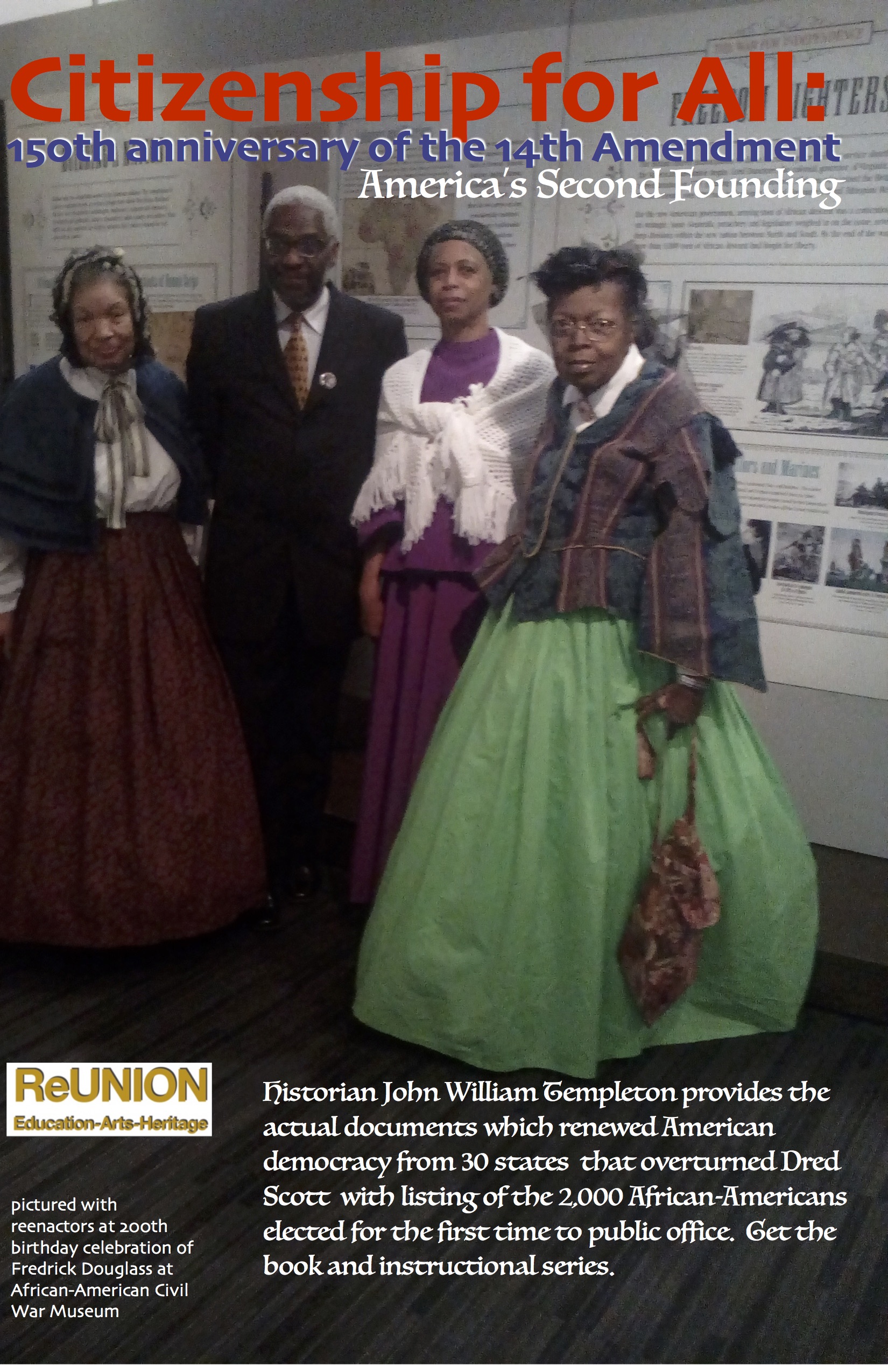The Co-founder of the 18th annual National Black Business Month gave U.S. District Court Judge Thomas Griesbach an overview of the legislative history of the 14th Amendment in the wake of a decision delaying distribution of $5 billion to African-American farmers. In a June 28 letter, John William Templeton wrote:
“The 14th Amendment was specifically passed to protect Black farmers from organized violence to gain economic advantage.
The 13th Amendment was similarly passed to prevent the forcible use of unpaid African-American agricultural labor.
Two factors led to both improbable measures. The decisive role of 209,145 U.S. Troops of African Descent, including the 29th Connecticut and 31st U.S. Colored Troops who entered Richmond and cut off supplies to the Army of Northern Virginia, causing its surrender; and the 90 percent voter turnout of freedmen in the elections of 1866, 1867 and 1868 after the passage of the Civil Rights Act of 1866.
The 11 volumes of testimony, taken through field hearings in 11 different states, contained such outrages that state legislatures ratified it in less than a year. At the same time, Congress impeached Andrew Johnson for his resistance to the franchise for those who had saved the Union.
After the election of President U.S. Grant, Congress would conduct additional hearings leading to the three Force (Anti-Ku Klux Klan) Acts and the creation of the Justice Department to enforce the 14th and 15th Amendment.
Congress would also create the Freedman’s Bank to insure access to credit.
Even the advocates of the 14th Amendment did not believe the 15th Amendment would pass the states, but the graphic “outrages” led to its swift passage as well.
In a further rebuke to Johnson, the 14th Amendment prohibited those who had engaged in insurrection against the nation from enjoying positions of public trust or profit.
The current Congress faced an even graver threat that the period of disease and disruption that followed the Civil War.
As author of the annual State of Black Business reports since 2004, I have reviewed state policies and required disparity studies for all 50 states longitudinally.
We have found that states like Texas, South Carolina, Tennessee and Virginia which explicitly measure the availability and contract success for specific racial groups show progress.
Since the passage of the Civil Rights Act of 1964, which requires all employers with more than 100 workers to practice equal opportunity hiring, no social science research has shown a track record of voluntary compliance in the absence of regulation or consent decree.
I was the first journalist to use Home Mortgage Disclosure Act data in 1978 to examine national banks. Forty years later, the statistics haven’t changed.
For the past 20 yeasr, I have chronicled equal opportunity in Silicon Valley, recording annual declines in equal opportunity.
As a number of states have found by creation of capital access programs, hypersegregated private entities can not be counted on to practice equal opportunity.”

